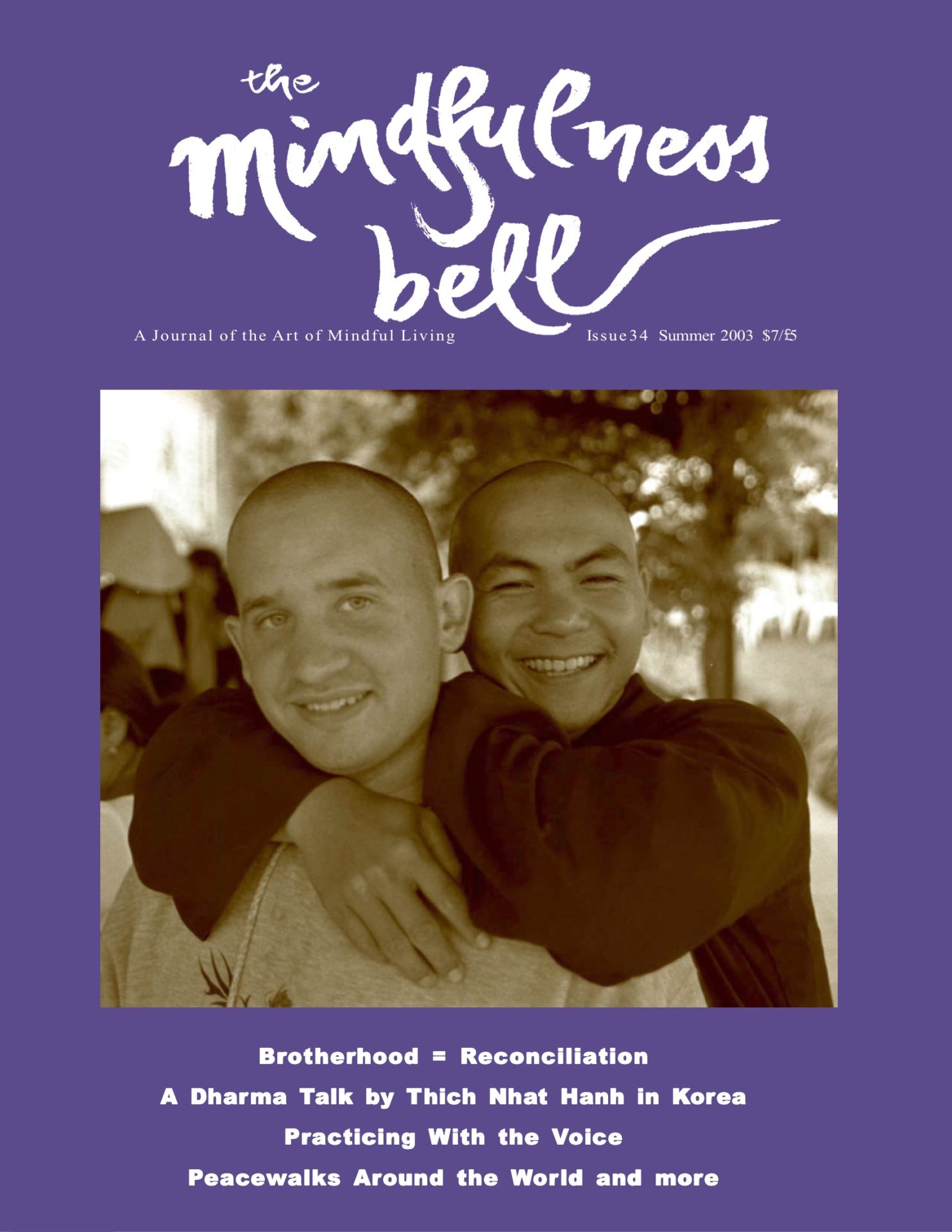Brother Phap Son
The earth never tires, The earth is rude, silent, and incomprehensible at first, Nature is rude and incomprehensible at first, Be not discouraged, keep on, there are divine things well envelop’d, I swear to you there are divine things more beautiful than words can tell.
– Walt Whitman
The other day, some of the brothers at Maple Forest Monastery went for a hike. It was a beautiful day,
Brother Phap Son
The earth never tires, The earth is rude, silent, and incomprehensible at first, Nature is rude and incomprehensible at first, Be not discouraged, keep on, there are divine things well envelop’d, I swear to you there are divine things more beautiful than words can tell.
– Walt Whitman
The other day, some of the brothers at Maple Forest Monastery went for a hike. It was a beautiful day, there was a sparkling freshness in the air. The white, puffy clouds contrasted with the blue sky and the bright sun, making the day feel radiantly and intensely alive.
We walked on a trail that takes us through the property of a neighbor. Suddenly the trail became narrower and was flanked by large, old trees. There are not many trees around here that are as old as these. As I looked at the trees, my eyes moved across the old stone wall behind them and I contemplated the fields of waving long grasses, flowers of many kinds, and the forest beyond the fields. I felt that I was very fortunate and very rich.
I wondered how many people have had the opportunity to spend time with these trees and if their awesomeness, their subtle but clear message, is perceived and heard by many. These trees have been alive for many years, they have seen seasons come and go, people come and go, events come and go; yet they are still standing in the same place where they began as small seeds. Their message is their presence. I once had a group of trees say “hello” to me, as I felt their presence near the walking meditation path of the Upper Hamlet at Plum Village. I invite all of us to stop, listen, and experience the beauty of nature for ourselves. Whatever it is you may feel, be open to feel that and receive.
We continued our walk down the forest path, feeling a light joy and happiness, like children running through the forests, free and without concern. A couple of brothers took time to examine the different kinds of wild mushrooms that grow in the forest, with an eye to their edibility! The rest of us enjoyed the sounds, the smells, and the sights before us. The forest is quiet, but the trees make their solid and gentle presence felt, with their straight trunks blending with the thick green foliage. I felt small in comparison to their size, but somehow I also felt connected to them, as if I were part of them. This brought me a sense of peace and tranquility, a feeling of completeness within myself.
As a European, living here in the United States has made me appreciate the beauty and significance of nature. It is rare to find places where nature is relatively unburdened by human activity. I have come to see that places like the Grand Canyon, Yosemite, Mt. McKinley and Wonder Lake in Alaska, the Sierra Nevada mountains, Lake Tahoe, and Death Valley are truly part of the great heritage of the people of this country. By being in touch with the preciousness of these places, I also feel compelled to understand what people like John Muir, Teddy Roosevelt, and Ansel Adams touched in nature that moved them to dedicate themselves to defending and protecting these treasures. These men are also part of the rich heritage of this country.
Thay has spoken often about the need for people to have roots, to be rooted in something good, wholesome, and beautiful, and how our modern way of living creates many hungry ghosts, people who don’t feel deeply connected to anything. Through these roots, these connections, we are able to feel the energy of love and caring. I think cultivating these roots, helping them grow, is more important than ever. Seeing the effects of the events of September eleventh here and on countries throughout the world, Thay’s instructions to develop roots makes more sense than ever. I see it as indispensable to a happy life. Through our practice of stopping, of coming back to ourselves, to mindfulness of our breathing, of our walking, our eating, our speaking, we can ground ourselves and open our eyes to the beauties around us. This results in our feeling nourished and more integrated, more whole.
Some of the brothers here at Maple Forest have offered part of their monthly allowance to environmental groups that help to defend environmental laws, that educate young people about the wilderness, that help to protect and preserve these precious places. There are many caring groups doing good work that can benefit from our support and concern.
There are things we can do to help heal our planet and preserve the natural treasures we have inherited. Part of the practice of Engaged Buddhism is to support groups and individuals who are doing their best to care for the environment.
Brother Chan Phap Son, True Dharma Mountain, is a monk and Dharma Teacher in Maple Forest Monastery in Vermont.

